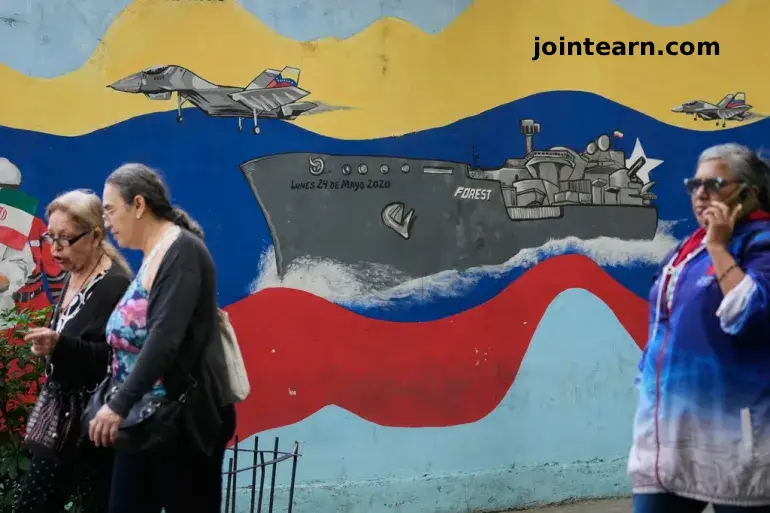
Venezuela has announced a massive deployment of its military forces in preparation for a potential US attack, as tensions rise in the Caribbean following the arrival of a US aircraft carrier in the region.
Venezuela Mobilizes Forces Across the Country
Venezuelan Minister of People’s Power for Defence, Vladimir Padrino, confirmed on Tuesday that the country is readying its army, navy, air force, riverine units, missile systems, police forces, militias, and citizen defense groups for any potential military incursion.
The announcement comes amid speculation that the United States could attempt to destabilize the government of President Nicolas Maduro, a longtime US rival.
US Military Presence in the Caribbean
The Pentagon confirmed that the Gerald R. Ford Carrier Strike Group, including the world’s largest aircraft carrier, has arrived in the Caribbean Sea. The deployment involves 4,000 sailors and tactical aircraft, raising concerns about possible US military actions against Venezuela.
Additionally, the US has deployed troops for exercises near Puerto Rico, El Salvador, Panama, and Trinidad and Tobago. The Trump administration frames these operations as efforts to combat drug trafficking and protect US national security, while also alleging Maduro’s involvement with the Venezuelan gang Tren de Aragua.
Maduro and his allies have criticized the moves, calling them imperialistic and provocative, escalating rhetoric amid heightened regional tensions.
Challenges Facing Venezuela’s Military
Despite efforts to project strength, experts warn that Venezuela may face significant challenges in defending against a potential US intervention. Issues include insufficient personnel, outdated equipment, and limited resources to sustain a large-scale conflict.
The Maduro government has used the threat of US attacks to rally domestic support, yet it faces widespread public discontent and growing diplomatic isolation following a contested 2024 election criticized for fraud and crackdowns on protesters.
US Strikes and Threats
The current military tension stems partly from US military strikes that began on September 2, targeting alleged drug-trafficking vessels in the Caribbean and Eastern Pacific. At least 19 air strikes have killed approximately 75 people, and President Trump has hinted that land strikes could follow, although he denied planning attacks on Venezuelan territory as of late October.
Legal and Domestic Considerations
Legal experts suggest that a US invasion of Venezuela could violate international law, and polling by YouGov indicates that 47% of Americans oppose land attacks on Venezuela, while only 19% support them.
Venezuelan Strategy for Resistance
While the armed forces have expressed loyalty to Maduro, supply shortages and inadequate resources have challenged their readiness. Reports indicate that Venezuela plans to use paramilitary and police forces, alongside small units positioned at approximately 280 locations to carry out sabotage and guerrilla tactics, aiming for prolonged resistance in case of a US incursion.
Venezuela’s announcement underscores the growing volatility in the Caribbean region, highlighting the potential for confrontation and the precarious balance of power in Latin America.


Leave a Reply